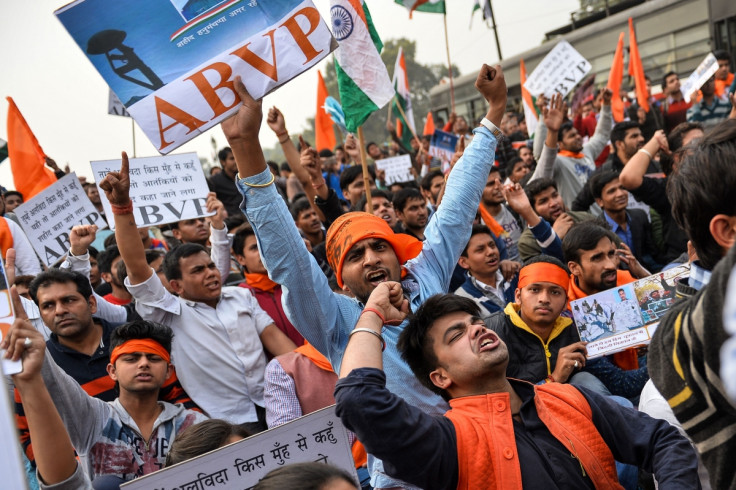JNU row: Noam Chomsky and British academics condemn 'unlawful' arrest of Kanhaiya Kumar

Academics from the world's leading universities, including Cambridge, UCL and the University of London, have condemned the "unlawful" arrest of Kanhaiya Kumar in New Delhi, India. Kumar, students' union president at the prestigious Jawaharlal Nehru University (JNU), was arrested on 12 February on charges of sedition for his role at an event held on campus.
In an open letter, academics from across the globe have condemned "the culture of authoritarian menace that the present government in India has generated", and have said that there was "no proof whatsoever" of any wrongdoing on Kumar's part. He had been reportedly detained over the chanting of "anti-national" slogans at a demonstration on JNU's campus, sparking an intense debate over nationalism versus freedom of speech in the country. Noam Chomsky was among academics who branded the student leader's arrest a "shameful act".
The statement from the academics stated: "The actions of the police have brought great dishonour to the government; and the failure of the vice-chancellor to speak out against these actions and moreover to allow the suspension of seven other students on charges that have not been established by a fair and transparent inquiry, will bring great dishonour to the most prominent university in the country in the eyes of academics all over the world."
In the letter, the signatories added Kumar had acted "well within the rights he possesses by the law of the land", and that he had no part in organising the event at which a handful of unidentifiable students shouted slogans about the Kashmiris' right to independence from the Indian military.
They claimed Kumar's arrest was "further evidence" of the "authoritarian nature" of the Narendra Modi government. They accused the ruling Bharatiya Janata Party of being "intolerant of any dissent" and ruining India's "long-standing commitment to toleration and plurality of opinion". They also said that Modi had replicated the "dark times of an oppressive colonial period".
Noam Chomsky, Nobel Laureate Orhan Pamuk and their colleagues concluded: "We take a stand of heartfelt solidarity with the students and faculty of Jawaharlal Nehru University in their efforts to resist these developments on its campus. We not only condemn the culture of authoritarian menace that the present government in India has generated, but urge all those genuinely concerned about the future of India and Indian universities to protest in wide mobilisation against it."
India's sedition laws dates back to the 19<sup>th century, when they were introduced by British colonial rulers. The arrest of Kumar on these charges has triggered widespread anger across academic institutions in India, however, thousands have also called for JNU to be shut down for fear of "breeding terrorists". A shocking number of people have referred to the students as being "anti-national", with a controversial Twitter hashtag: 'We Fund Your Studies' urging students to focus on their studies, not on politics.
© Copyright IBTimes 2025. All rights reserved.





















